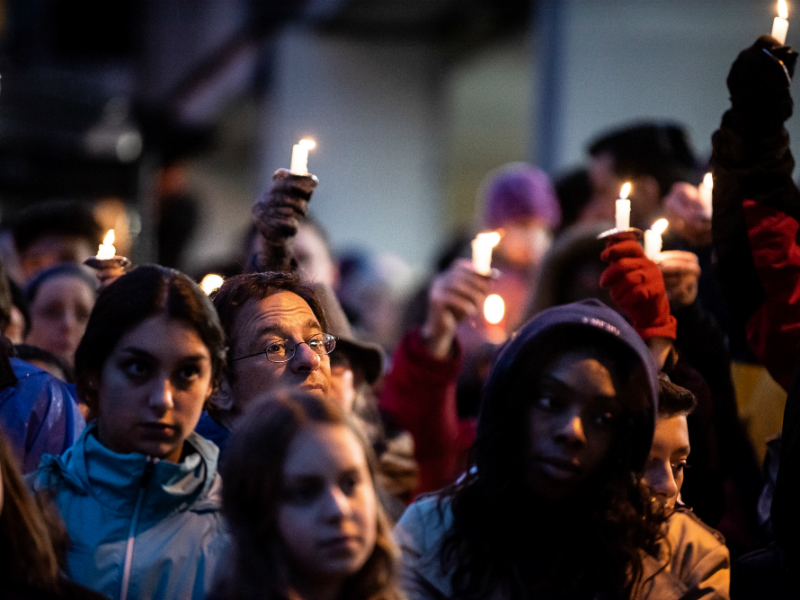I will lift up my eyes to the mountains.
From where does my help come?
My help comes from the Lord, who made heaven and earth!
– Psalm 121:1-2
As Jews around the world recite Psalms on behalf of their brothers and sisters in distress, I continue my look at Tehillim resources.
Although the Psalms are most closely identified as being the work of King David, Jewish tradition tells us there were contributions from other personalities such as Moses – although King David is credited with the vast majority. Rabbi Boruch Clinton adds that although the popular image of David is that of a tremendous warrior king, we should not lose sight of his role as a great Torah scholar and author of poetry which “can unlock our hearts and draw us up towards their exalted greatness.”
Judaism has always believed in the power of prayer particularly when it is said as part of a global community. If you are not able to join a Tehillim group where you live, then you may want to consider the Tehillim Hotline. This network of volunteers divide Tehillim and complete reciting several cycles of the book daily.
Tehillim Together is a free app for your phone that lets you join in “campaigns” to recite Tehillim for individuals who need speedy recovery from illness. You can also create your own campaign by answering the questions, “Who is the group praying for?” and “Why is this person in need of prayer?”
If you want to have a deeper understanding about the prayers that you are reciting, then you can listen to Rabbi Yaakov D. Homnick who presents four one-hour lectures on Tehillim. The series starts with an in-depth look at the first chapter of Psalms and delves into what makes a good person. All of these lectures are available and can be downloaded.
READ: TEHILLIM / PSALMS: IN TIMES OF CRISIS, JOY AND THANKSGIVING – PART 1
One of the best known and beloved psalms is number 145 known as “Ashrei.” Rav Avraham Yitzhak Kook, the first Chief Rabbi of Israel, examines the importance of this psalm which is organized according to the letters of the Hebrew alphabet. “These letters are the ‘building blocks’ of the Torah. When we praise God with all of these letters, we recognize that closeness to God is attained through the Torah’s enlightenment.” Rabbi Kook offers insights to dozens of other psalms on this site.
Rabbi Simkha Y. Weintraub suggests two interesting and practical ways to help you internalize and understand the Psalms. “Words of Psalms can be valuable tools in refocusing, centering, and quieting oneself, as a kind of Jewish mantra.” He lists 18 phrases – one or two link excerpts – that can be recited at almost any time in order to help you elevate the most routine activities of your day. For example:
- The next time you touch something of value consider saying “You open Your Hand, and satisfy the desire of every living thing.” (Psalm 145:16).
- When you light a candle: “It is You who lights my candle; Hashem, my God, illumines the darkness.” (Psalm 18:29)
- And when you stroke a pet: God extends Goodness to all; God’s compassion reaches all creatures. (Psalms 145:9)
If you come across a psalm which you have difficulty comprehending, Rabbi Weintraub has also created a form which you can fill in to help you focus on and extract the essence of the psalm’s message.
When Varda Branfman was growing up, she thought that the Psalms had been written in “High English by some medieval cleric” and never associated anything Jewish with them. In two lovely essays, she explains how she rediscovered the beauty and importance of Tehillim after she moved to Israel. “Here was an expression of the overwhelming gratitude that had been welling up in my heart. I really felt that I had been pulled out from a pit just as I was nearing the point of no return. Suddenly, everything was utterly changed. I found my soul, and that soul wanted to sing out and never again be silent.”
Branfman then explains how important Tehillim was to her as she saw her mother succumb to illness. “In the last three months of my mother’s life, I say more Tehillim than I have said in the last 15 years. She is semi-conscious, and I sit beside her bed as the Tehillim pour out of me. … When I open up the Tehillim, I sense my soul speaking to her soul in a time and place that is beyond the reality of the hospital bed. I am shaking inside, but my voice is steady. The words of Tehillim are absorbed through her permeable skin. They are the last words I speak to my mother before she leaves this world.”
Next time, how King David’s opus still inspires fellow artists thousands of years later.
